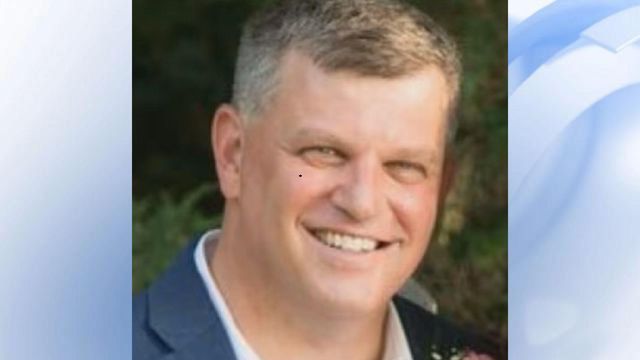Examining Trump’s Claims About Rep. Ilhan Omar
President Donald Trump’s attacks on Rep. Ilhan Omar, D-Minn., have been the centerpiece of his political strategy in recent days, a tactic that led his supporters at a raucous rally in North Carolina on Wednesday to erupt into chants of “send her back.”
Omar is one of four Democratic members of Congress — all women of color — who have come in for intense criticism from Trump. His particular focus on Omar, who was born in Somalia and immigrated to the United States as a refugee, followed months of comments from him casting her as “ungrateful” and “unpatriotic.”
On Wednesday, Trump drew attention to rumors that Omar had married her brother. The president then dove into a litany of accusations about the congresswoman. Some, like his repeated claims that Omar had praised al-Qaida, were flatly false. Others, like his description of her citing a death toll in an infamous battle as “slander” against U.S. troops, were his subjective characterizations of her remarks.
Here’s a fact check.
What Trump Said
“Well, there is a lot of talk about the fact that she was married to her brother. I know nothing about it.”— in remarks to reporters Wednesday
— Rumors that Omar had married her brother have been circulating since 2016, when she ran for state representative in Minnesota. No proof has emerged substantiating these claims.
In 2016, Omar released a statement denying the rumors as “absolutely false and ridiculous” and providing a timeline of her marital history.
According to that timeline, she applied for a marriage license with Ahmed Hirsi in 2002, but never finalized the application. In 2008, they ended their relationship “in our faith tradition.”
State records show that in 2009, Omar legally married Ahmed Nur Said Elmi, who she said was a British citizen. They obtained a religious divorce in 2011, according to her timeline, and Elmi returned to England.
She then reconciled with Hirsi and married him legally in January 2018, a month after she legally divorced from Elmi, according to The Associated Press. She and Hirsi have three children. Last month, Minnesota’s campaign finance board found that Omar filed joint tax returns in 2014 and 2015 with Hirsi while she was still legally married to Elmi. She agreed to pay a fine and back taxes as a result of the amendments to her returns those years.
In 2016, a blog called PowerLine cited a now-deleted post on an internet forum that claimed Elmi is Omar’s brother.
In 2018, The Minneapolis Star Tribune reported that Omar showed a reporter cellphone images of documents from her family’s entry into the United States in 1995. They listed her father and siblings by order of birth, with Omar listed as the youngest of seven children. Elmi’s name did not appear in the documents. According to the couple’s marriage certificate, he is also three years younger than Omar, whose mother died when she was 2 years old.
What Trump Said
“So Rep. Omar blamed the United States for the terrorist attacks on our country, saying that terrorism is a reaction to our involvement in other people’s affairs.”— at a rally in North Carolina on Wednesday
— Trump was likely referring to comments Omar made in a 2013 interview with a local television program.
“Nobody wants to face how the actions of the other people that are involved in the world have contributed to the rise of the radicalization and the rise of terrorist acts,” she said.
Omar’s suggestion that there are links between foreign intervention and terrorism is not uncommon among scholars and world leaders and not unlike remarks from Trump himself.
“Our current strategy of nation-building and regime change is a proven, absolute failure,” Trump said in an August 2016 speech in Ohio. “We have created the vacuums that allow terrorism to grow and thrive.”
What Trump Said
“She smeared U.S. service members involved in Black Hawk Down, in other words, she slandered the brave Americans who were trying to keep peace in Somalia.”
— “Black Hawk Down” refers to a 17-hour firefight on Oct. 3, 1993, that broke out between U.S. forces and Somali militiamen in Mogadishu during the country’s civil war. Omar and her family fled Somalia during that war.
In 2017, Omar wrote, “thousands of Somalis killed by American forces that day!”
Her figure is a matter of dispute, but whether her comment amounted to a “smear” or “slander” is a matter of opinion. U.S. forces deployed to Somalia in 1992 as part of a humanitarian effort. Their mission culminated the next year when forces aligned with warlord Muhammad Farah Aideed shot down two Black Hawk helicopters in a battle in which 18 Americans were killed and 75 wounded. The events were depicted in the book “Black Hawk Down” by journalist Mark Bowden and a film of the same name.
The army has cited estimates of between 500 and 1,700 Somali casualties. Bowden reported that most death toll estimates ranged from 300 to 500 Somalis. Robert Oakley, ambassador to Somalia under President George H.W. Bush, said in a 1998 interview that he believed between 1,500 and 2,000 Somalis were killed and wounded.
What Trump Said
“She pleaded for compassion for ISIS recruits attempting to join the terrorist organization.”
— Omar wrote a letter to a federal judge asking for leniency in sentencing on behalf of nine Somali-American men, who were found guilty or pleaded guilty in 2016 to charges that they tried to travel to Syria to join the Islamic State.
“I bring to your attention the ramifications of sentencing young men who made a consequential mistake to decades in federal prison. Incarcerating 20-year-old men for 30 or 40 years, is essentially a life sentence,” Omar wrote in November 2016. “Such punitive measures not only lack efficacy they inevitability create an environment in which extremism can flourish, aligning with the presupposition of a terrorist recruitment: ‘Americans do not accept you and continue to trivialize your value. Instead of being a nobody, be a martyr.’”
“The best deterrent to fanaticism is a system of compassion,” the letter continued.
What Trump Said
“Omar laughed that Americans speak of al-Qaida in a menacing tone and remarked that you don’t say America with this intensity, you say al-Qaida. It makes you proud. Al-Qaida makes you proud. You don’t speak that way about America.”
— Trump distorted Omar’s remarks. In that 2013 local news interview, Omar was discussing the rhetoric around terrorism. When the host noted that “we keep the Arabic names” of terrorist groups, she responded with an anecdote about a college professor who would say the names with “intensity, so it must mean or bold a bigger meaning.”
Nowhere in the interview does she say that “al-Qaida makes you proud.” What Trump Said
“And at a press conference just this week when asked whether she supported al-Qaida … she refused to answer, she didn’t want to give an answer to that question.”
— Asked to respond to Trump’s false claims about her praising terrorists, Omar said she would not “dignify it with an answer.”
She also added that she did not expect white community members to respond to questions about whether they “love” a white supremacist or a white man involved in a mass shooting, “so I think it is beyond time, it is beyond time to ask Muslims to condemn terrorists. We are no longer going to allow the dignification of such a ridiculous statement.”
What Trump Said
“Omar blamed the United States for the crisis in Venezuela.”
— In May, she appeared on an episode of “Democracy Now!” after a segment featuring an economist who estimated that 40,000 Venezuelans died from 2017 to 2018 as a result of sanctions imposed by the United States. (Others have criticized those findings.)
Omar agreed with the economist, adding, “A lot of the policies that we have put in place has kind of helped lead the devastation in Venezuela. And we’ve sort of set the stage for where we’re arriving today. This particular bullying and the use of sanctions to eventually intervene and make regime change really does not help the people of countries like Venezuela, and it certainly does not help and is not in the interest of the United States.”
What Trump Said
“And she looks down with contempt on the hard-working Americans, saying that ignorance is pervasive in many parts of this country.”
— In a May interview with a podcast from The Nation, Omar was asked about her experience being elected as a state representative in 2016 just days after Trump held a rally in Minnesota where he criticized the vetting process for Somali refugees and vowed to slow it down.
John Nichols, host of the podcast, commented that Omar might seize the “teaching moments” generated by the chasm between her personal story and Trump’s rhetoric.
“I think people have a misconception about refugees and, and the process they go through to come to the United States,” Omar responded.
As an example, she said, a Minnesota candidate for governor had vowed to stop the refugee resettlement program, prompting her to issue a Twitter post explaining how the process works.
“And so it is not that they might not be knowledgeable about this, but they use it as a tool to stir up hate and division,” she continued. “And ignorance really is pervasive in many parts of, of this country. And as someone who was raised by educators, I really like to inform people about things that they might be ignorant to, willingly or unwillingly.”









